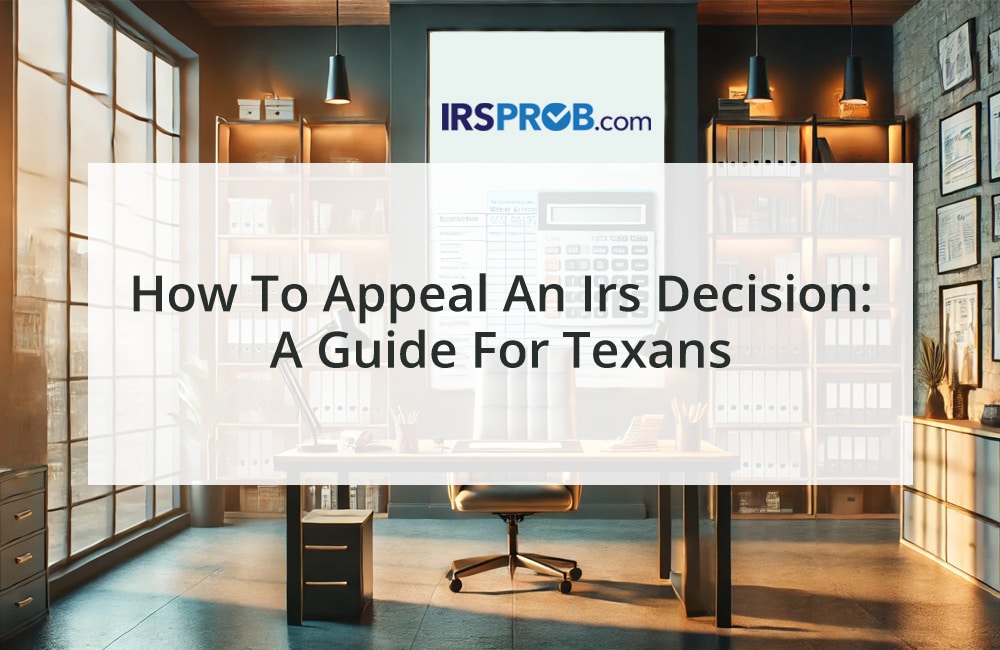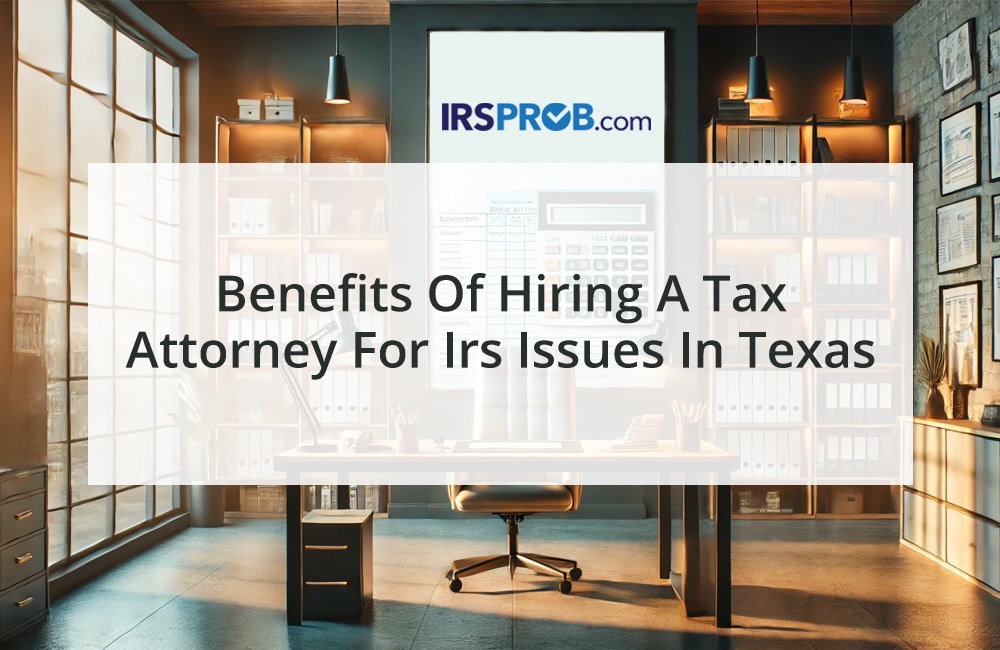Dealing with the IRS can be a daunting task, especially if you’ve received a decision you believe is unjust. Understanding the IRS appeal process in Texas is essential for residents who find themselves in disagreement with an IRS decision. Whether you’re a small business owner facing a tax issue, or a Texan grappling with a personal tax decision, navigating the complexities of the IRS can feel overwhelming. It’s crucial to know that you have rights and options available to you, one of which is the formal appeal process. This process provides a chance to have your case reviewed by an independent committee that can reassess and potentially reverse the IRS’s decision. Learning how to effectively maneuver through this system can save you time, reduce stress, and possibly bring about a more favorable outcome. In this guide, I’ll provide insights into the IRS appeal process Texas residents need to know, breaking down the steps and offering practical tips for a more efficient resolution.
Understanding the IRS Appeal Process for Texans
The IRS appeal process is designed to offer taxpayers a fair chance to have their cases heard when they disagree with IRS decisions. Essentially, it is a system where taxpayers can request a review of their case by a division within the IRS that operates independently of the initial decision-makers. For example, if you’ve received a notice stating you owe a significant amount in taxes due to an audit but believe the assessment is incorrect, you can file an appeal. Another scenario could involve a denial of a request for penalty relief; an appeal could provide a second opinion on the matter. It’s imperative for Texans to grasp this process to contest decisions without having to go to court, thus saving resources and time.
Why the IRS Appeal Process is Critical for Texans
Understanding and utilizing the IRS appeal process can significantly impact Texans facing disputes with the Internal Revenue Service. It empowers taxpayers by offering an alternative to immediately accepting an unfavorable decision, ensuring that their voices are heard in matters that could affect their financial wellbeing.
- Consider a small business owner whose tax credits were erroneously denied. Without an appeal, they might suffer financial loss, stifling their business’s growth.
- Imagine a family undergoing an audit with miscalculations leading to an inflated tax bill. The burden of such an error could strain family finances without the appeal avenue.
- Consider a scenario where an individual faces a misleading penalty for late payments. Without challenging this through an appeal, they might pay unnecessary fines.
Walking Through the IRS Appeal Process: Key Steps for Texans
- Step 1: After receiving a decision from the IRS, promptly review it and determine your grounds for disagreement. Prepare a written protest or use IRS Form 12203.
- Step 2: Submit your protest along with any supporting documentation to the Office of Appeals, ensuring all forms and proofs support your case.
- Step 3: Once your appeal is submitted, await a response. The Office of Appeals will contact you for further discussion or decisions, which could eventually lead to a resolution outside of court.
Effective Tips for Navigating Your IRS Appeal in Texas
Common Queries about the IRS Appeal Process in Texas
How IRSProb Supports Clients Effectively
IRSProb is a beacon for Texans navigating the complex landscape of IRS disputes. Specializing in tax resolution, the firm offers comprehensive support, from understanding IRS communications to filing formal appeals. Clients benefit from IRSProb’s extensive experience and professionalism, ensuring that every case is treated with diligence and care. The firm’s team of experts works tirelessly to provide clarity in each client’s unique situation, offering peace of mind and a strategic approach to resolving conflicts with the IRS. By focusing on personalized service and effective communication, IRSProb ensures that every client feels informed and supported throughout the appeal process.
Main Points: A Summary on Navigating the IRS Appeal Process in Texas







